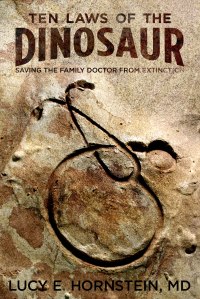There’s an article in the New England Journal of Medicine about the “Unintended Consequences of Four Dollar Generic Drugs“. Ever one to hone in on unintended consequences of all stripes, I quickly clicked through. Oh dear! What bad could possibly come of making drugs significantly more affordable? Were more people demanding prescriptions for drugs they didn’t really need now that they were so cheap? (Dream on. I’m still twisting arms to get my high-risk cardiac patients to take their generic statins.) Were pharmacies going out of business, no longer to make ends meet without massive markups on brand name drugs, contributing to skyrocketing unemployment and otherwise adding to the country’s general economic malaise? Were cardiologists’ incomes plummeting because of sagging rates of coronary disease, now that everyone could easily afford their beta blockers, ACE inhibitors, and statins? Or maybe it was something good. I guess technically, “unintended” doesn’t automatically equal “bad”. What could it be?
So I read. And what did I discover?
It turns out that once people start paying cash for cheap generic drugs, their insurance companies can no longer keep tabs on their prescription drug use. Even though a patient may be taking all the medications recommended by guidelines for their conditions, those cash prescriptions won’t show up in the database, so it looks (to the insurance company, that is) like the patient is getting substandard care. Oh noes!!
For FSM’s sake, all you need to do is implement a national database for prescriptions (part of my version of an ideal EMR). And just to shut up the privacy Nazis before they get started, all that information is already being gathered by the insurance companies, who have no incentive to do anything other than mine it for information they can use to pry more of your hard-earned benjamins out of your pocket. Trust me; despite what you think you’ve heard about it, the government doesn’t care what drugs you take. The cheaper the better as far as they’re concerned.
If the worst thing about four dollar generics is that they screw up the ability of a couple of megacorporations to worm their way into my medicine cabinet, more power to them (generics, that is). After all, what’s more important: being healthy, or making sure some nameless, faceless pharmacy benefits manager knows you’re healthy?
The hell with the bean counters. Drop those prices, and let the cheap prescribing continue.

Unbelievable article. The authors seem to assume that the entire health care system in this country exists only to serve the needs of the PBM parasites.
By: primary doc on November 17, 2010
at 9:13 am
As a veterinarian, I love the $4 prescriptions because my clients pay for just about everything out-of-pocket. They’re far more likely to follow my treatment recommendations if the drugs are cheap.
By: Outrider on November 17, 2010
at 10:06 am
“The hell with the bean counters. Drop those prices, and let the cheap prescribing continue.” << I agree!
By: rlbates on November 17, 2010
at 11:45 am
[…] Pity the Poor Bean Counters […]
By: Quick Links | A Blog Around The Clock on November 17, 2010
at 2:40 pm
A national database is an interesting idea, especially if doctors & pharmacists can access the info. No more wondering what prescriptions the patient got from another doctor or filled at another pharmacy. I routinely filled all mine at a single pharmacy as well as bringing a current med list to all medical appointments, until my health insurer declined to give me the 30 generic ambien that my internist prescribed. Nope, Big Blue says I can only have 14. So I figure, to hell with them, I’ll just call around to local pharmacies, see who has the best price, and pay cash for it there so I can get the prescription FILLED, not half-filled.
That’s when I discovered the completely outrageous prices most pharmacies charge uninsured patients. The difference between cheapest and most expensive was a factor of 10: $9.33 at one place, $99 at another. And these were all national chains. I had no idea that pharmacies gouged uninsured patients as badly as hospitals do.
By: Finn on November 17, 2010
at 3:10 pm
What a sensible set of points you make. Add to it any over the counter meds, like allergy medications, anti-diarrhea drugs, PPIs, NSAIDs. All of that stuff is so important for a doctor to know about – and totally unlogged. Except as part of my pharmacy chain’s record of my purchases for promotional and commercial use. 😦
By: dyspatient on November 19, 2010
at 8:19 am
Yep, when I saw the title of the article I thought maybe there was something wring with the $4 generics. But it wasn’t that, the PBMs (blast ’em) just have a harder time keeping up with $4 generics because somebody has a presciption/which they pay money for and the PBM gets left out of the transaction entirely and can’t get their stikcy little fingers on them to count them.
By: mamadoc on November 19, 2010
at 9:36 pm
While I don’t love pbms, I am concerned about accurate patient medication records and drug interactions. Unfortunately, too many patients pharmacy hop for the coupons and lots of patients provider hop so there is no good system for accurately tracking and watching for drug interactions. Pharmacists as there to help (hopefully) and not hinder access. As far as price gouging, it’s really no different than other goods and different retailers set different margins on products. For example a local grocery store sells slim fast below their cost to get people to shop but charges more for yogurt than another retailer. Be sure to ask if the pharmacy price matches because some do now, particularly smaller chains.
By: a pharmacist on November 23, 2010
at 10:12 am